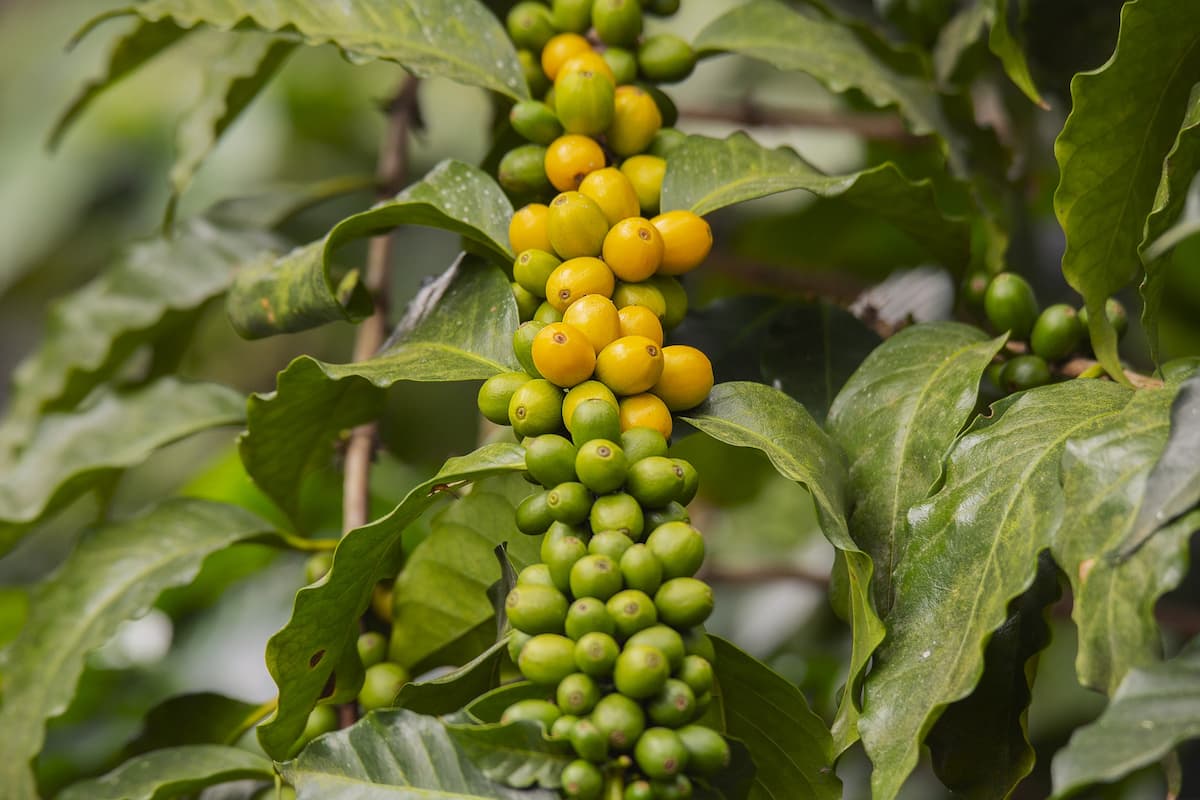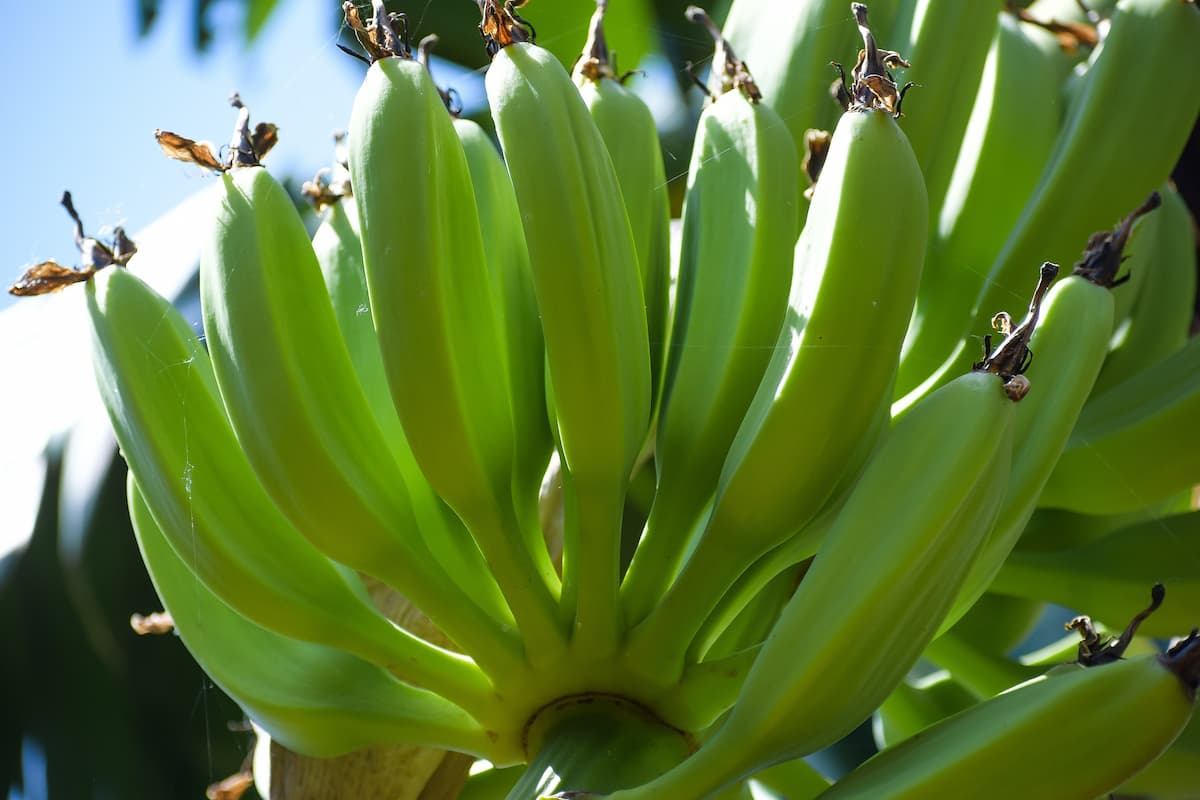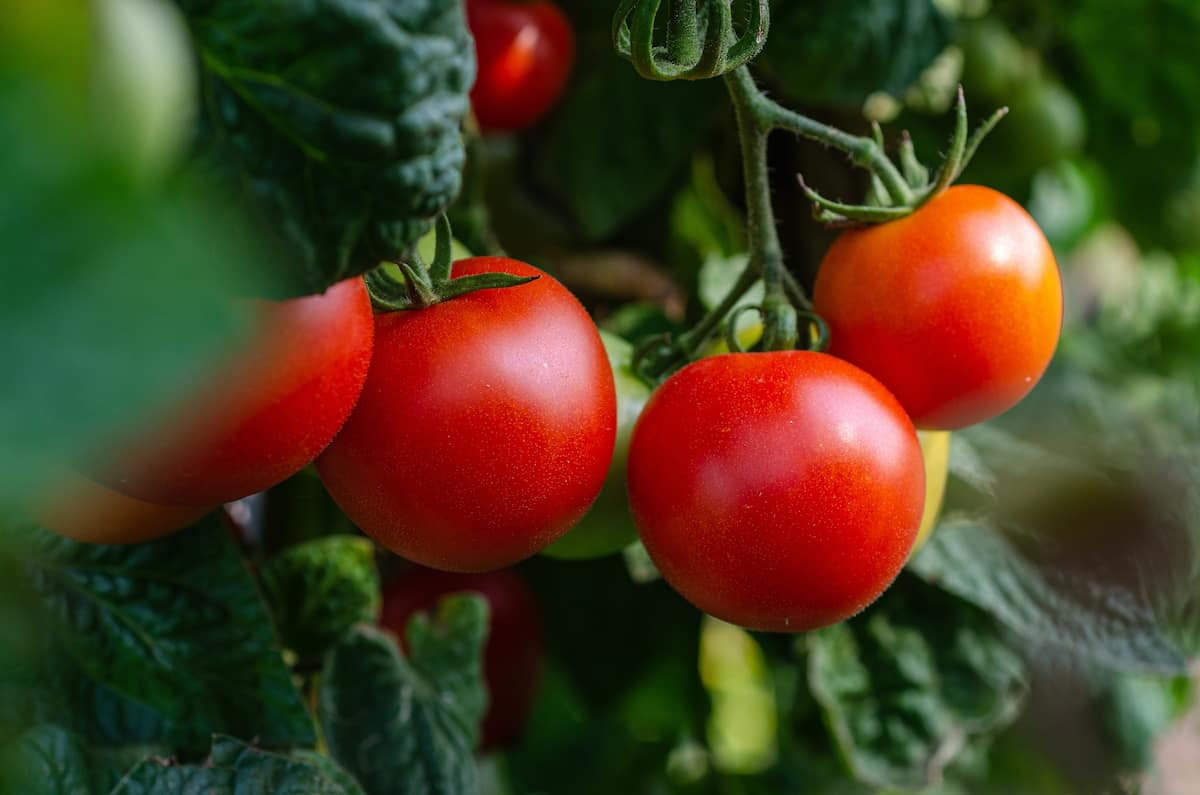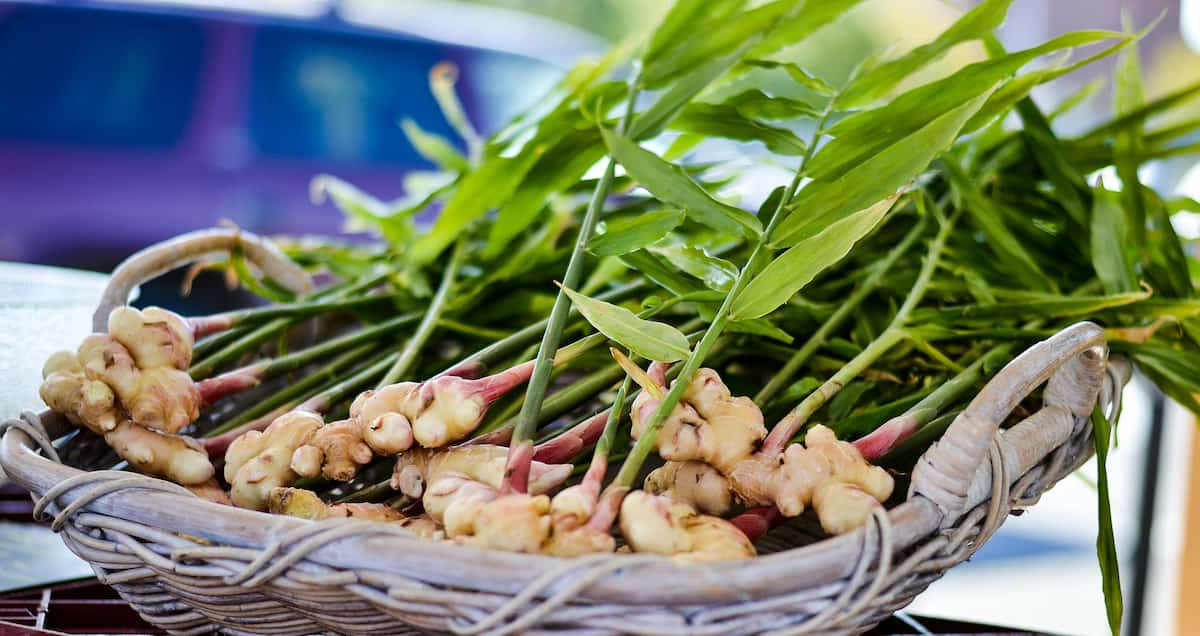It is a form of agriculture that relies on natural processes rather than synthetic inputs. This farming is gaining popularity in the Philippines due to its many benefits. Some of the benefits of organic farming include improved soil health, increased crop yields, and reduced dependence on chemical inputs. Additionally, organic farming is more environmentally sustainable than conventional farming practices.

How to Start organic farming in the Philippines
What is organic farming?
It is a form of agriculture that relies on natural processes rather than synthetic inputs to enhance crop production. Organic farming in the Philippines is successful in yield, quality, and farmer satisfaction.
Steps to start organic farming in the Philippines
- It is a type of agriculture that relies on natural processes rather than synthetic inputs to enhance crop production. Organic farmers use crop rotation, green manures, and composting techniques to maintain soil productivity and control pests and diseases.
- The Philippines is a country with diverse ecological zones, which makes it ideal for organic farming. The main step in starting an organic farm is to assess your land and decide what crops you can grow. You will need to prepare your land by clearing it of any weeds or grasses and testing the soil to ensure it is suitable for organic farming. Once you have prepared your land, you can plant your crops using organic seeds or seedlings.
- Using organic fertilizers and pest controls on your farm is important to avoid contaminating your crops with harmful chemicals. Many natural products can be used as fertilizers and pest controls, such as manure, neem oil, and Bacillus thuringiensis (BT). These products are safe for people and the environment and will not harm your crops.
- Once your plants are in the ground, monitoring them closely and keeping up with regular weeding and watering schedules is important. When it comes time to harvest your crops, do so carefully to avoid damaging the plants. With a bit of planning, you can successfully start an organic farm in the Philippines.
- Organic farmers strive to create a balanced ecosystem where crops and animals thrive. They work with natural processes to enhance soil health and minimize pollution. And they aim to reduce their reliance on non-renewable resources.
- The Philippines has a long history of organic agriculture. Traditional Filipino farmers have always used organic methods to grow rice, corn, vegetables, and fruits. However, with modern agricultural practices, many farmers have turned to synthetic inputs such as chemical fertilizers and pesticides.
Tips to start an organic farm in the Philippines
It is a form of agriculture that relies on naturally occurring processes rather than synthetic inputs. Organic farms in the Philippines are typically small-scale and family-run.
- Start with a small plot of land. You can expand your farm as you gain experience and knowledge.
- Use natural methods to prepare the land for planting. This includes solarization, green manures, and composting.
- Choose crops that are well-suited to the climate and soils of the Philippines. Some examples include rice, coconuts, mangoes, and bananas.
- Use organic fertilizers and pest control methods. There are many recipes available online or from local farmers.
- Harvest your crops using sustainable methods. This includes using manual labour whenever possible and storage and processing techniques that preserve nutrients and minimize wastage.
In case you missed it: 17 Key Rules for Effective Organic Farm Management: From Planning to Reduce Production Cost

Organic vegetable farming in the Philippines
Organic vegetable farming is an agriculture sector where crops are grown without synthetic fertilizers or pesticides. The Philippines is home to a diverse range of organic vegetables grown using traditional methods passed down through generations. Organic vegetable farming in the Philippines is important to the country’s food security. Organic vegetables are not only nutritious and free from harmful chemicals, but they are also more resilient to pests and diseases.
This makes it ideal for small-scale farmers who cannot afford to use expensive chemicals on their crops. The future of organic vegetable farming in the Philippines looks promising, with more and more people recognizing the benefits of eating organic food. With proper support from the government and private sector, small-scale farmers will be able to continue producing healthy, chemical-free vegetables for Filipino consumers.
Certified organic farms in the Philippines
There are many certified organic farms in the Philippines that grow various crops. These farms use sustainable practices that help protect the environment and improve air, water, and soil quality. The products grown on these farms are free of synthetic pesticides and fertilizers, and they are often certified by international organizations such as the Soil Association or CERES. Organic farms provide a healthy alternative to conventional farming practices and offer a wide range of products that are perfect for those who want to eat healthily and support sustainable agriculture.
Is organic farming Profitable in the Philippines?
Organic farming can be profitable in the Philippines, but it depends on several factors. The most important factor is the price of organic foods. If the prices of organic foods are high, farmers will be able to make a profit. However, if prices are low, farmers may not be able to make a profit. Another important factor is the cost of inputs. Organic farming requires more labor than conventional farming, so farmers must be able to cover their labor costs.
Additionally, organic farmers must purchase organic inputs, which can be more expensive than conventional inputs. Finally, it is important to consider the market for organic products. The Philippines has a small market for organic products, so farmers must sell their products at a premium to make a profit. Farmers who can find buyers willing to pay a premium price for their products will be more likely to profit from organic farming.
Organic soil management in the Philippines
- Organic soil management is vital to sustainable agriculture and is an important part of organic farming. In the Philippines, organic farmers use various methods to manage their soils, including traditional methods such as mulching and crop rotation and modern techniques such as vermicomposting.
- Mulching is a common organic soil management practice in the Philippines. Farmers often use rice straws or leaves from trees, such as coconuts and mangoes, to mulch their fields. Mulching helps to prevent erosion, retain moisture in the soil, and improve soil fertility.
- Crop rotation is another popular organic soil management practice in the Philippines. Crop rotation helps to control the life cycles of pests and diseases, improve soil fertility, and increase crop yields. Common crops grown in the Philippines include rice, corn, vegetables, fruits, and legumes.
- Vermicomposting is a modern organic soil management technique that is becoming increasingly popular in the Philippines. Vermicomposting uses worms to convert organic waste into rich compost that can be used to improve soil fertility. Vermicomposting is an environmentally friendly way to dispose of organic waste and create a valuable resource for farmers.
In case you missed it: How to Make Curry Leaf Plant Bushy: Compost, Homemade, Natural, and Organic Fertilisers to Grow Faster

Pest and diseases management for organic farming in the Philippines
Pest and disease management is one of the important aspects of organic farming. It is essential to prevent or control pests and diseases to maintain a healthy crop. There are different ways to do this, including natural pest control methods, such as Companion planting and crop rotation. In the Philippines, several common pests and diseases can affect crops. These include;
Aphids
These small insects suck the sap from plants, causing them to weaken and eventually die. Control them by spraying plants with water or using an insecticide.
Armyworms
These caterpillars can strip a plant of its leaves in just a few days. They are best controlled with an insecticide.
Cabbage loopers
These caterpillars also eat plants, causing damage similar to armyworms. They can be controlled with an insecticide or by Companion planting with nasturtiums (Tropaeolum majus), which deter them.
Nematodes
Tiny parasitic worms that attack plant roots in the soil. They cause stunted growth and yellowing leaves. Control them by solarization (heating the soil to kill the nematodes) or growing resistant crop varieties.
Organic farmers must be vigilant to prevent or control these pests and diseases. By using natural methods where possible, they can minimize the use of harmful chemicals on their crops
Methods or techniques followed for organic farming in the Philippines
Crop rotation
This involves planting different crops in a particular order in the same field to replenish nutrients in the soil and help control pests and diseases.
Cover crops
Also known as green manures, cover crops are planted between cash crops to add soil organic matter and prevent erosion. They also help control weeds and pests.
Composting
This is the process of decomposing organic materials like crop residues, animal manure, and kitchen scraps into a nutrient-rich soil amendment called compost. Compost can be used to improve plant growth and yield, as well as reduce dependence on chemical fertilizers. Composting is a great way to fertilize the soil without using synthetic chemicals or pesticides. It involves breaking down organic matter like food scraps and leaves into a nutrient-rich compost used to feed plants.
Biological pest control
This involves using beneficial insects or other organisms to control pests instead of chemical pesticides. Examples include ladybugs which eat aphids, and wasps, which parasitize caterpillars.
Intercropping
Intercropping is another popular organic farming practice in the Philippines. This involves growing two or more different crops in the same field, which can help to improve yields and provide a more diverse range of nutrients for the plants.
In case you missed it: Organic and Chemical Solutions to Get Rid of Potato Scab: Symptoms, Causes, and Treatment

Is organic agriculture applicable in the Philippines?
Yes, organic agriculture is applicable in the Philippines. The Philippines has a tropical climate and a diverse range of crops. There are many organic farms in the Philippines producing a variety of fruits, vegetables, grains, and other products. The National Organic Program (NOP) of the Philippines implements the national policy on organic agriculture. The NOP provides guidelines for organic certification, accreditation of certifying bodies, and labeling organic products.
Organic farming resources in the Philippines
The Philippines is a rich agricultural heritage. Organic farming has been practiced in the country for centuries, and the Philippines has a wealth of resources to support organic farmers. In addition to its natural resources, the Philippines has several organizations supporting organic farmers. These organizations provide training, financial assistance, and other resources to help farmers transition to organic agriculture. They also work to promote organic products in the market and raise awareness about the benefits of organic farming.
Weed management for organic farming in the Philippines
Weed management is the most important aspect of organic farming. There are several ways to manage weeds in the Philippines effectively.
- One method is through the use of cover crops. Cover crops are plants that are grown in between rows of crops. They help to prevent weeds from growing with the main crop for nutrients and space. Cover crops can also add organic matter to the soil, improving fertility.
- Another method of weed management is through the use of mulch. Mulch is placed on the soil to help prevent weeds. Mulch helps lock in moisture and keep the soil cooler, improving plant growth.
- Another way to manage weeds is by using herbicides. Herbicides are chemicals that kill or control weeds. However, it is important to carefully read the label before using any herbicide, as some may be harmful to humans or animals if not used properly.
- Finally, good weed management practices also include the physical removal of weeds. This can be done by hand-pulling, hoeing, or tilling. Physical removal is often most effective when combined with other methods, such as mulching or herbicides.
Which organic crops are grown in the Philippines?
Organic rice is grown extensively in the Philippines and is a staple part of the diet for many Filipinos. Coconut trees are also abundant in the Philippines, and coconuts are used in many different ways – from being turned into oil or milk to being used as a natural sweetener. Coffee is another popular crop in the Philippines and is often exported to other countries. Bananas and mangoes are two of the most popular fruits in the Philippines and are often used in desserts or made into juices.
Pineapples and papayas are also commonly grown in the Philippines, and both make for refreshing snacks on hot days. Vegetables such as tomatoes, peppers, eggplants, squash, and beans are also commonly grown in home gardens and farms across the Philippines. Several organic crops are grown in the Philippines, including rice, corn, vegetables, fruits, and herbs. Below are the most common organic crops grown in the Philippines:
- Rice
- Corn
- Vegetables (e.g., cabbage, broccoli)
- Fruits (e.g., bananas, mangoes, pineapples, papayas)
- Herbs (e.g., ginger)
- Coffee
In case you missed it: NPK Deficiency in the Soil and Plants: Symptoms, Causes, and Fix it Naturally, Organically, and Chemically

Organic farming certification in the Philippines
Organic farming certification in the Philippines is a process that farmers must go through to sell their products as certified organic. To be certified, farmers must follow specific guidelines set by the Philippine government. These guidelines include only using organic methods to raise crops and animals, having a farm plan that outlines organic practices, and submitting annual reports to the government detailing their organic practices. Certification can be lengthy and costly, but it ensures that farmers follow proper organic procedures.
Schemes under organic farming in the Philippines
Organic farming in the Philippines is still in its infancy, with only a handful of farmers practicing it. However, a few schemes are in place to promote organic farming in the country. One such scheme is the Organic Farm Business Plan (OFBP) of the Department of Agriculture (DA). The OFBP provides financial and technical assistance to farmers who want to transition to organic farming. It also requires farmers to undergo training in organic farming practices.
Another scheme is the Organic Agriculture Program (OAP) of the Bureau of Soils and Water Management (BSWM). The OAP promotes organic agriculture through research, extension, and education. It also provides financial assistance to farmers who want to adopt organic farming practices. The Philippine Center for Postharvest Development and Mechanization (PhilMeD) also has an Organic Farming Program aiming to develop appropriate organic agriculture technologies. PhilMeD provides training, demonstration farms, and technical assistance to farmers wanting to practice organic farming.
Problems of organic farming in the Philippines
One of the big problems with organic farming in the Philippines is a lack of infrastructure. Farmers often have to use manual labor instead of machinery, which greatly increases the time and effort required to farm. Additionally, there is a lack of storage facilities for organic produce, which can lead to food spoilage. Another problem facing organic farmers in the Philippines is a lack of market access. Because organic foods are not widely available in the country, farmers have difficulty selling their products and making a profit.
Many Filipino consumers who compound this problem are not aware of the benefits of eating organic foods. In addition, organic farmers in the Philippines often face pests and diseases that can decimate their crops. Farmers must be constantly on alert for infestations and take steps to prevent them from happening. This can be a difficult and costly task, particularly for small-scale farmers.
In case you missed it: 10 Organic Fertilizers for Your Vegetable Garden: When and How to Apply

Challenges faced by organic farmers in the Philippines
- Poor infrastructure is a major challenge for organic farmers in the Philippines. Many farmers do not have access to irrigation, which makes it difficult to grow crops during the dry season. In addition, roads are often poorly maintained and difficult to navigate, making it hard for farmers to transport their products to market.
- Lack of market access is another challenge faced by organic farmers in the Philippines. Most organic farmers sell their products directly to consumers but often have difficulty reaching potential buyers.
- Nonetheless, organic farming in the Philippines has great potential. The country has ideal climate conditions for organically growing various crops. Moreover, there is an increasing demand for organic products from local and international consumers. With proper support and assistance, Philippine organic farmers can overcome these challenges and become successful in this rapidly growing industry.
Conclusion
The success of organic farming in the Philippines can depend on many factors, including the country’s favorable climate and soil conditions and farmers’ commitment to using organic practices. With continued support from the government and private sector, organic farming in the Philippines is expected to continue to grow and contribute to the country’s agricultural sector.
- How to Build a Low-budget Goat Shed: Cheap Ideas and Tips
- Goat Farming Training Programs in India: A Beginner’s Guide
- Types of Pesticides Used in Agriculture: A Beginner’s Guide
- Economical Aquaculture: A Guide to Low-Budget Fish Farming
- 15 Common Planting Errors That Can Doom Your Fruit Trees
- How to Make Houseplants Bushy: Effective Tips and Ideas
- Innovative Strategies for Boosting Coconut Pollination and Yield
- Pollination Strategies for Maximum Pumpkin Yield
- The Complete Guide to Chicken Fattening: Strategies for Maximum Growth
- Natural Solutions for Tulip Problems: 100% Effective Remedies for Leaf and Bulb-Related Issues
- Revolutionizing Citrus Preservation: Towards a Healthier, Greener Future
- Natural Solutions for Peony Leaf and Flower Problems: 100% Effective Remedies
- Maximizing Profits with Avocado Contract Farming in India: A Comprehensive Guide
- Natural Solutions for Hydrangea Problems: 100% Effective Remedies for Leaf and Flowers
- The Ultimate Guide to Choosing the Perfect Foliage Friend: Bringing Life Indoors
- From Sunlight to Sustainability: 15 Ways to Use Solar Technology in Agriculture
- The Ultimate Guide to Dong Tao Chicken: Exploring from History to Raising
- The Eco-Friendly Makeover: How to Convert Your Unused Swimming Pool into a Fish Pond
- Mastering the Art of Delaware Chicken Farming: Essentials for Healthy Backyard Flocks
- 20 Best Homemade Fertilizers for Money Plant: DIY Recipes and Application Methods
- How to Craft a Comprehensive Free-Range Chicken Farming Business Plan
- Brighten Your Flock: Raising Easter Egger Chickens for Beauty and Bounty
- How to Optimize Your Poultry Egg Farm Business Plan with These Strategies
- Subsidy for Spirulina Cultivation: How Indian Government Schemes Encouraging Spirulina Farmers
- Ultimate Guide to Raising Dominique Chickens: Breeding, Feeding, Egg-Production, and Care
- Mastering the Art of Raising Jersey Giant Chickens: Care, Feeding, and More
- Ultimate Guide to Raising Legbar Chickens: Breeding, Farming Practices, Diet, Egg-Production
- How to Raise Welsummer Chickens: A Comprehensive Guide for Beginners
- How to Protect Indoor Plants in Winter: A Comprehensive Guide
- Ultimate Guide to Grow Bag Gardening: Tips, Tricks, and Planting Ideas for Urban Gardeners
- Guide to Lotus Cultivation: How to Propagate, Plant, Grow, Care, Cost, and Profit
- Agriculture Drone Subsidy Scheme: Government Kisan Subsidy, License, and How to Apply Online
- Ultimate Guide to Raising Araucana Chickens: Breed Profile, Farming Economics, Diet, and Care
- Bringing Hydroponics to Classroom: Importance, Benefits of Learning for School Students
- Ultimate Guide to Raising Polish Chickens: Breed Profile, Farming Economics, Diet, and Care
- Ultimate Guide to Raising Australorp Chickens: Profile, Farming Economics, Egg Production, Diet, and Care